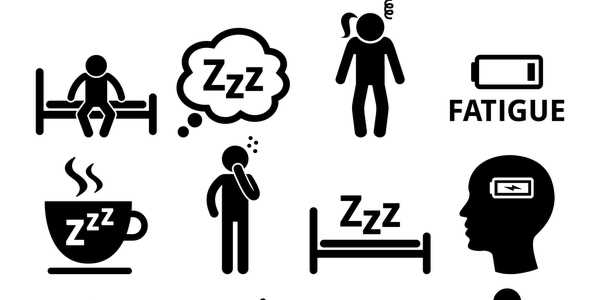
Chronic fatigue involves extreme tiredness that doesn’t improve with rest. It is persistent fatigue that lasts for weeks or months, making it difficult to carry out your usual activities.
It can also be accompanied by other symptoms, such as muscle pain, joint pain, headache, and difficulty concentrating.
It may also be called myalgic encephalomyelitis (ME) or systemic exertion intolerance disease (SEID).
Symptoms of Chronic Fatigue
Chronic fatigue is different from feeling tired after a long day or week.
The symptoms of chronic fatigue can vary from person to person, but three primary symptoms must be present for diagnosis:
- Significantly lowered ability to do usual activities lasting six months or longer
- Post-exertional malaise – unusual worsening of symptoms after physical or mental activity, and it may take days or weeks to recover.
- Sleep problems, such as trouble falling asleep, staying asleep, or not feeling less tired after a full night of sleep
A diagnosis also requires at least one of these two symptoms:
- Problems with thinking and memory
- Orthostatic intolerance – worsening of symptoms when standing or sitting upright
There may also sometimes be symptoms such as:
- Muscle aches, pain, and weakness
- Joint pain without swelling or redness
- Tender lymph nodes in the neck or armpits
- Frequent sore throat
- Irritable bowel syndrome or other digestive issues
- Chills and night sweats
- Allergies and unfamiliar sensitivities to foods, odors, chemicals, light, or noise
- Shortness of breath
- Irregular heartbeat
- Headaches
If you’re experiencing any of these symptoms, see a doctor so that they can rule out other possible causes.
Causes of Chronic Fatigue Syndrome
The definite cause of chronic fatigue is unknown, but several possible contributing factors are available. These include:
- Infections – Some viral infections have been linked to chronic fatigue, such as Epstein-Barr virus, human herpesvirus 6, and rubella virus.
- Immune system problems – people with chronic fatigue may have abnormal immune system function, which can worsen symptoms.
- Hormonal imbalances – imbalances in hormones such as adrenal, thyroid, and sex hormones can contribute to chronic fatigue.
- Psychological stress – conditions such as anxiety, depression, and post-traumatic stress disorder (PTSD) can lead to chronic fatigue.
- Sleep problems – sleep disorders such as insomnia can worsen fatigue and make it harder to recover from exertion.
Treatment for Chronic Fatigue Syndrome
There is no specific cure for chronic fatigue, but there are treatments that can help improve symptoms and quality of life.
These include:
- Pacing and activity management
- Better sleep habits
- Pain-relief medication
- Therapy to address any underlying mental health issues
- Balanced diet
- Nutritional supplements, if deficiencies are present.
- Massage, deep breathing, and other relaxation therapies
People living with chronic fatigue may also benefit from reducing or eliminating caffeine intake. While caffeine might boost energy levels in the short term, it can worsen fatigue and make it harder to sleep in the long term.
Although there is no known cure, these lifestyle changes and strategies may help.






















